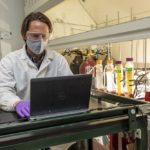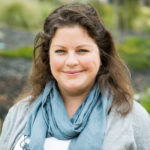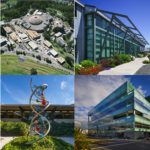Three Berkeley Lab projects were awarded more than $2 million from the DOE’s Technology Commercialization Fund (TCF) to further collaborative research and development with industry partners on radioactivity detecting technology, next generation electrodes for electrolysis of water, and high performance sustainable aviation fuel. In addition, industry partners are matching the DOE funds for an additional $2 million. A project from the Biosciences Area was among those awarded, funding the scale-up of a high-performance sustainable aviation fuel.
Q&A: How Microorganisms Can Help Us Get to Net Negative Emissions
A project led by Eric Sundstrom, a research scientist at the Advanced Biofuels and Bioproducts Process Development Unit (ABPDU), combines biology and electrochemistry to produce complex molecules, all powered by renewable energy. Sundstrom spoke with Berkeley Lab on how this technology could help combat climate change.
Biosciences Area 2020 LDRD Projects
The projects of 14 Biosciences Area scientists and engineers received funding through the FY20 Laboratory Directed Research and Development (LDRD) program. The funded projects span a diverse array of topics and approaches including: developing closed-loop plastics from biogenic feedstocks; reimagining a root system optimized for plant-microbe interactions; and creating computational tools for extracting macromolecular conformational dynamics. Lab-wide, 96 projects were selected from a field of 168 proposals. Biosciences Area efforts account for 18.5 percent of the $23 million allocated.
Biosciences Area FY19 LDRD Projects
The projects of 13 Biosciences Area scientists and engineers received funding through the FY19 Laboratory Directed Research and Development (LDRD) program. The funded projects span a diverse array of topics and approaches including the harnessing of microbiome data to uncover patterns of mutualism, evaluating radiobiological effects of laser-accelerated ion beams, improving bioenergy yield under drought stress, and the application of machine learning in tomogram segmentation. Lab-wide, 89 projects were selected from a field of 158 proposals. Biosciences Area efforts account for 15.07 percent of the $22.2 million allocated.
Was this page useful?







